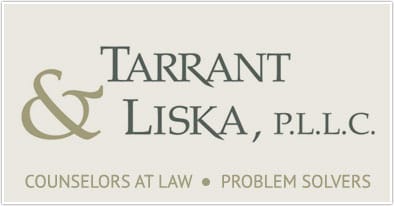Who Gets Priority In Appointment As Guardians And Conservators?
How are guardians or conservators appointed under Minnesota law? The court considers numerous factors but gives priority status to certain people based on a statutory order of preference. The law firm of Tarrant & Liska, P.L.L.C., counsels nominees for guardianship and conservatorship, and also represents wards in court proceedings.
If you have been nominated or think you should be guardian/conservator, call our St. Paul office at 651-315-8738 to arrange a consultation.
Appointment Of A Guardian Of A Minor
In the case of a minor (person under the age of 18), the court will appoint a guardian if there is no parent capable of caring for the child. A parent may nominate a guardian for a minor child either by petition to the court while he or she is alive, or by prior written instruction to be effective on the death or disability of the parent. Normally, on the death of the parents of a minor child, a guardian is appointed as part of the process.
Objections to the appointment may come from the minor child, if he or she is old enough, the other parent, a currently assigned guardian, any person with custody of the minor or any person interested in the welfare of the minor. In the end, the court has to consider the best interests of the children, but the courts give a great deal of deference to the choices of the parents. Making your wishes known might prevent contests that could occur within the family if your wishes were not known.
Attorney Melanie Liska represents wards in guardianship and conservatorship proceedings as one of a select number of Minnesota attorneys appointed by the probate courts in Hennepin County and Ramsey County to do so.
Priority For Appointment: Incapacitated Individual Or Person Unable To Manage Their Financial Affairs
Guardianships
Under Minnesota law, if a person (ward) is impaired in his or her ability to make decisions about personal needs, the courts will appoint a person to make decisions about living arrangements and health care decisions. This person is called a guardian. By statute, who gets appointed as guardian adheres to an order of priority. By naming a guardian, you increase the likelihood of whom you want to be appointed for yourself, your spouse or your adult child.
Priority order is as follows:
- Current guardian
- Nominated guardian under ward’s health care directive
- Spouse of ward
- Adult child of ward
- Parent of ward
- Adult caregiver of ward
The nomination of a person who would be entitled to priority is an important consideration for the court. The order of priority is not set in stone, however. In the end, the court determines appointment in the best interests of the ward from the court’s perspective, but its perspective might not be the same as your perspective. You may need an advocate to ensure the most qualified, responsible and trustworthy person is appointed as guardian.
The proper care of the disabled or elderly ward in need of a guardian depends on the most qualified person being appointed to control care provided to the ward. We can help you obtain the outcome that is in the best interests of you or your loved one.
Conservatorships
A conservatorship is concerned with management of the finances of a person (protected person) who is unable to handle his or her financial affairs. The conservator is subject to court supervision but has a great deal of authority and discretion. Needless to say, who is conservator can be subject to a great deal of controversy.
There also is a statute establishing the order of priority for the appointment of a conservator. The order is as follows:
- Current conservator, guardian of the estate or similar fiduciary
- Nominated conservator by protected person
- Protected person’s agent by durable power of attorney
- Spouse of protected person
- Adult child of protected person
- Parent of protected person
- Adult caregiver of protected person
- Relatives of protected person
Our lawyers can help you ensure that the most qualified person is appointed conservator of the protected person’s estate, public benefits and other assets throughout their life.
Seeking Appointment As A Guardian Or Financial Conservator?
We practice in the Twin Cities and statewide. Call us at 651-315-8738 (toll-free at 888-342-2493) or contact us by email to schedule a meeting with one of our St. Paul attorneys. We offer an initial half-hour consultations. Additionally, we are flexible to meet with you during evenings and weekends, and we travel to meet with clients by request.
Our offices are conveniently located on Concordia Avenue, just off Snelling Avenue, in St. Paul.
Payment plans can be arranged, and Visa and Mastercard are welcome.
